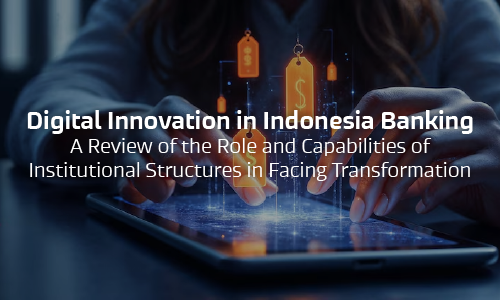
Summary: Indonesia's banking sector is undergoing a significant digital transformation, with institutional arrangements playing a pivotal role in ensuring success and sustainability. A survey of 49 banks highlighted key capabilities such as promoting a digital mindset (30.46%), developing digital competency roadmaps (29.85%), fostering a collaborative and goal-oriented digital culture (27.08%), and managing financial models (24.92%). Banks also focus on optimizing resources, facilitating knowledge distribution, and designing organizations to enhance information flow. These efforts emphasize the importance of cultural transformation, employee skills development, and resource optimization to adapt to technological advancements and drive innovation, enabling the banking sector to lead Indonesia's digital economy.
Indonesia, as one of the developing countries with a dynamic economy, has undergone significant changes in the banking sector in line with the acceleration of digital transformation. Financial institutions in Indonesia have endeavored to adapt to technological advancements to meet the demands of an increasingly sophisticated market. In this context, the institutional structure of the banking sector plays a key role in ensuring the success and sustainability of digital transformation.
To further understand the capabilities of institutional arrangements in the banking sector for digital transformation, a survey was conducted involving 49 banks in Indonesia, including state-owned banks, regional development banks, national commercial banks, and foreign private banks. A total of 325 respondents, including CEOs, CIOs, Heads of IT Divisions, and Heads of Business Divisions, participated in the survey.
Source: PT. Solmit Research and Consulting
The survey utilized seven indicators to measure the banks' capabilities in establishing and implementing institutional arrangements. These indicators included organizational design to support information exchange and knowledge flow, facilitating knowledge distribution within the organization and value network to ensure its appropriate use, structures enabling quick codification and dissemination of knowledge throughout the organization, a digital culture oriented toward collaboration and strategic goals, a digital competency development roadmap, promotion of a digital mindset, optimizing resources to manage the digital transformation portfolio, and describing the financial management of the business model by considering income and expenditure aspects.












